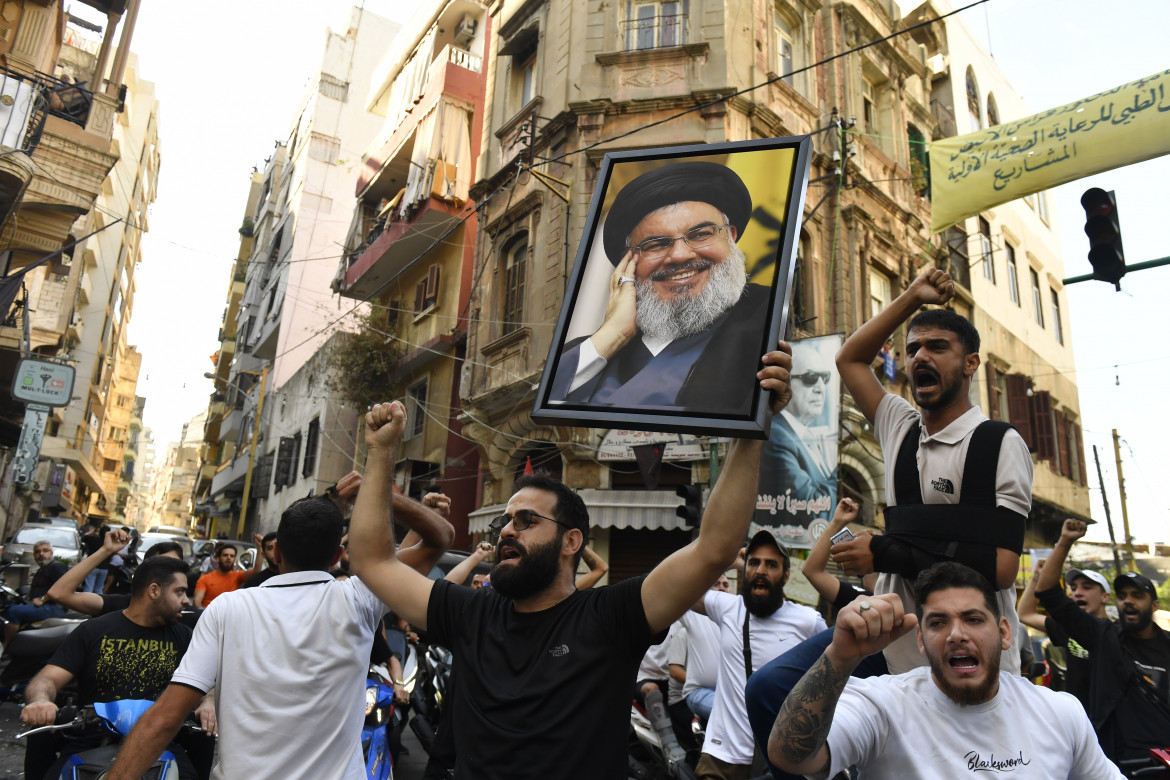Analysis
Nasrallah is dead and everything has changed
It would be extremely reductive to view Nasrallah as merely the head of a militia. The days ahead will be difficult, unpredictable and full of grief and resentment. What happens next will decide the fate of Lebanon.

“As soon as the news came, everyone stopped. People were shaking, crying, shouting and beating their chests. It moves you,” says a volunteer from a local NGO that distributes relief goods at the reception center for the displaced set up in the compound provided by the Ministry of Education in the southeastern Beirut suburb of Dekwaneh.
On Friday, the explosions were so loud here it was as if the schoolyard was being bombed. The news would be heard around the world on Saturday: Hassan Nasrallah is dead. Everyone knows that things have changed.
The Shi’a community is in shock throughout Lebanon. In Beirut, in the southern neighborhoods, but also in the central areas of Bashoura, Zarif or Basta, one could hear the cries and sobs of men, women and children over the loss of a leader, a political, religious and military guide, a guiding light.
It would be extremely reductive to view Nasrallah as merely the head of a militia. The days ahead will be difficult, unpredictable and full of grief and resentment. One could hear slogans like “‘Aysh, ’aysh!” (“He lives, he lives!”) or “Labbayka ya Nasrallah!” (“At your command, Nasrallah!”).
Condolences came from much of the political spectrum in Lebanon: Michel Aoun (former president and ally of Hezbollah), Walid Jumblat (head of the Druze community) and Saad Hariri (former prime minister and Sunni leader) all paid homage to Nasrallah. Others reacted very differently: the right-wing conservative Lebanese Forces, representing the Christian community, a historical opponent of the militia-party, made no official statements, but on Friday night, after the violent attack and the news of Nasrallah's alleged death there was a celebratory atmosphere at the party headquarters in Geitawe, East Beirut, the party's stronghold in the capital, with music blaring late into the night.
Throughout Friday night, the Israeli Air Force continued to bomb Dahieh, the Beirut neighborhood where Nasrallah was killed. The residents poured out into the streets and went as far as Corniche, at the sea, hoping that at least they would be safe there. Hospitals in the area were also being hurriedly evacuated. People fear a repeat of what happened in Gaza, and there are serious grounds for that fear. Last year, not long after the war began, Israeli Defense Minister Gallant had made this exact threat: “What we can do in Gaza, we can do in Beirut.”
Saturday saw more heavy attacks on the southern suburbs of Beirut. At about 5:30 p.m. local time, the neighborhood of Lailaki was hit. At 6 p.m., it was the turn of Chiyah, a residential and populous neighborhood within walking distance of the Beirut Mall. After half an hour, another airstrike. At 8 p.m. local time, it was the turn of Hay el-Sellom, near the airport, and a few minutes later the Israeli Air Force bombed an industrial area just 500 yards from the airport.
Israeli military spokesman Avichay Adraee announced on X that Hassan Khalil Yassine, head of Hezbollah's intelligence department, had been killed in one of the airstrikes. It seems that Nasrallah’s likely successor, Hachem Safieddine, head of the group’s executive council, was not present on Friday when Nasrallah was killed, after initial rumors that he was also dead.
Lebanon’s Health Minister, Firas Abiad, reported that since October 8, the day the conflict involving Lebanon began, 1640 Lebanese had been killed (104 children, 194 women) with 8404 wounded and missing. One thousand have died during this new phase of the conflict alone. These are obviously conservative figures, not counting the victims of the latest airstrikes because at this time it is too dangerous even to dig under the rubble, as Israel is striking the same places again and again.
The country’s south, and the Beka’a region in the east, have been under continuous airstrikes -extensive and systematic – for a week now. According to the International Organization for Migration (IOM), the number of registered displaced persons is at around 150,000, but the real number is at least twice as large. Coming mostly from the south, but also from Beka'a, they have poured into Beirut and other relatively safer cities.
One after another, embassies are calling for their citizens to leave the country. Some, such as those of Germany and the United States, have already put evacuation plans in place for the families of diplomats, while others, such as the Italian embassy, have so far limited themselves to urging their citizens to leave the country voluntarily.
Najib Miqati, the outgoing Prime Minister, rushed back from New York even before the news of Nasrallah’s death became official. He decreed three days of national mourning, from Monday to Wednesday. Ayatollah Ali Khameini, Iran's supreme leader, decreed five.
Nasrallah's death has shifted the balance of the conflict decisively. Every scenario is on the table, and the war might take any turn from now on. What happens now will decide the fate of Lebanon and the entire Middle East.
Originally published at https://ilmanifesto.it/morto-nasrallah-tutto-cambia on 2024-09-29
